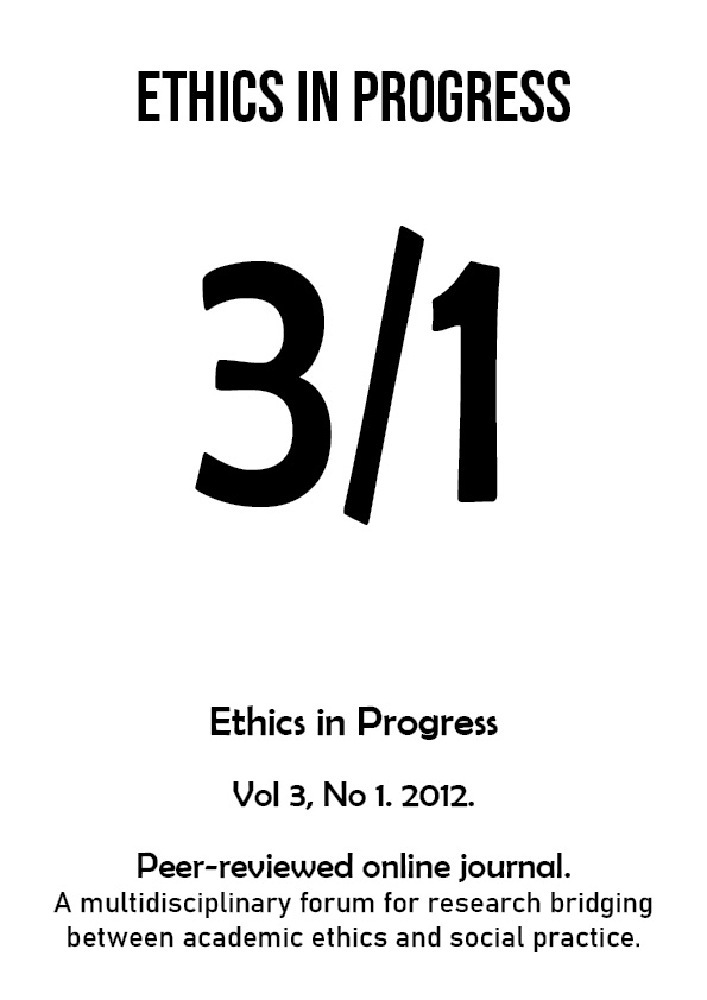Abstract
Boghossian’s (2003) proposal to conditionalize concepts as a way to secure their legitimacy in disputable cases applies well, not just to pejoratives – on whose account Boghossian first proposed it – but also to thick ethical concepts. It actually has important advantages when dealing with some worries raised by the application of thick ethical terms, and the truth and facticity of corresponding statements. In this paper, I will try to show, however, that thick ethical concepts present a specific case, whose analysis requires a somewhat different reconstruction from that which Boghossian offers. A proper account of thick ethical concepts should be able to explain how ‘evaluated’ and ‘evaluation’ are connected.References
Belnap, N. D. 1962. Tonk, Plonk and Plink. Analysis 22, 6. June: 130–134.
Blackburn, S. 1981. Reply, Rule-Following and Moral Realism, in: Wittgenstein: To Follow a Rule, S. Holtzman & C. Leich (Eds.). London: Routledge, 163–187.
Boghossian, P. 2003. Blind Reasoning. Proceedings of the Aristotelian Society, Supplementary Volume 77: 225–248.
Carnap, R. 1966. Philosophical Foundations of Physics: An Introduction to the Philosophy of Science. New York: Basic Books.
Dummett, M. 1973. Frege: Philosophy of Language, London: Duckworth.
Evans, G. 1973. The Causal Theory of Names. Proceedings of the Aristotelian Society, Supplementary Volume 47: 187–208.
Geach, P. 1960. Ascriptivism. The Philosophical Review LXIX: 221–225.
Grice, P. 1989. Studies in the Way of Words. Harvard University Press.
Horwich, P. 2000. Stimulation, Meaning and Apriority, in P. Boghossian & Ch. Peacocke (Eds.), New Essays on the A Priori. Oxford University Press, 150–169.
Lewis, D. K. 1997. Finkish Dispositions. Philosophical Quarterly 47: 143–58.
McDowell, J. 1981. Non-Cognitivism and Rule Following, in S. Holtzman and C. Leich (Eds.), Wittgenstein: To Follow a Rule. London: Routledge, 141–162.
Prior, A. 1960. The Runabout Inference Ticket. Analysis 21: 38–9.
Ramírez, O. 2011. Between Non-Cognitivism and Realism in Ethics: A Threefold Model. Prolegomena 10(1): 101–212.
Ramsey, F. P. 1929. “Theories,” republished in his Foundations. In D. H. Mellor (Ed.), Essays in Philosophy, Logic, Mathematics and Economics. London: Routledge & Kegan Paul.
Russell, B. 1905. On Denoting. Mind New Series 14, Nº 56: 479–493.
Williams, B. 1985. Ethics and the Limits of Philosophy. Harvard University Press.
Williamson, T. 2000. Knowledge and its Limits, Oxford University Press.
Williamson, T. 2003. Blind Reasoning. Proceedings of the Aristotelian Society, Supplementary Volume 77: 249–293.
Williamson, T. 2009. Reference, Inference and the Semantics of Pejoratives, in J. Almog, P. Leonardi (Eds.), The Philosophy of David Kaplan. Oxford University Press, 137–158.




